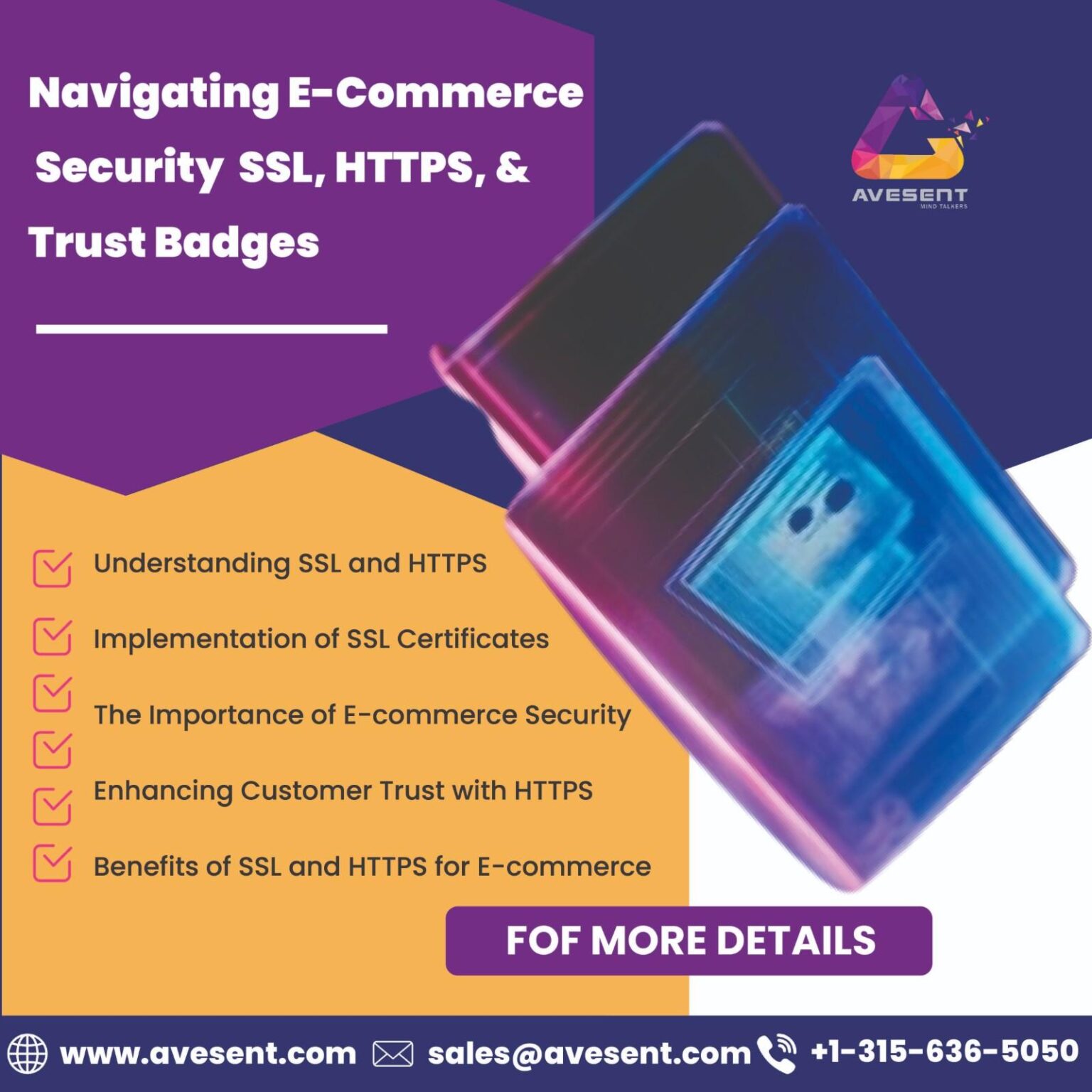Building trust and providing security for online buyers are critical in the world of e-commerce. Strong security features like HTTPS protocol, SSL (Secure Sockets Layer), and trust badges not only protect private data but also boost consumer confidence and trust in your online business. Knowing and utilising these security elements is essential to building a safe and reliable e-commerce environment, especially when working with Florida pay-per-click management.
The Importance of E-commerce Security:
Security is a fundamental concern for online shoppers. Providing a secure platform instills confidence in customers, encouraging them to complete transactions and share sensitive information.
Understanding SSL and HTTPS:
SSL is a security protocol that encrypts data transmitted between a user’s browser and the website server. HTTPS (Hyper Text Transfer Protocol Secure) uses SSL to secure connections, ensuring data integrity and confidentiality.
Enhancing Customer Trust with HTTPS:
Transitioning from HTTP to HTTPS ensures secure communication between the user’s browser and the website. The presence of HTTPS in the URL assures customers that their data is encrypted and protected.
Implementation of SSL Certificates:
SSL certificates are digital certificates that authenticate the identity of a website and encrypt data. Installing an SSL certificate is a foundational step toward establishing a secure connection.
Benefits of SSL and HTTPS for E-commerce:
Utilizing SSL and HTTPS protects sensitive customer information, such as credit card details and personal data, reducing the risk of data breaches and unauthorized access.
SEO Impact of HTTPS:
Google favors HTTPS-enabled websites in its search engine rankings. Websites with HTTPS tend to rank higher in search results, benefiting from a slight SEO boost.
Trust Badges and Security Seals:
Trust badges, security seals, or certifications displayed on e-commerce websites reassure customers about the site’s security measures. Visible trust badges convey legitimacy and trustworthiness.
Consumer Perception and Trust Elements:
Trust badges and secure connection indicators, such as padlock symbols or “secure” labels in the browser’s address bar, positively influence consumer perception, reinforcing trust.
Maintaining Trustworthiness through Transparency:
Communicating security measures to customers through transparent policies and clear explanations about data protection practices further enhances trust and confidence.
Pay-per-Click (PPC) Campaigns and Trust Signals:
Integrating trust signals, such as SSL badges and secure connection indicators, into PPC ad landing pages in Florida bolsters credibility and encourages click-through rates.
Regular Monitoring and Maintenance:
Continuous monitoring and regular updates of SSL certificates and security protocols ensure ongoing protection against potential vulnerabilities.
Educating Customers on Security Measures:
Educating customers about the significance of SSL, HTTPS, and trust badges fosters awareness and reinforces the importance of secure online transactions.
Navigating e-commerce security involves a multi-faceted approach, encompassing SSL implementation, HTTPS adoption, trust badge display, and transparent communication about security measures. Collaborating with pay-per-click management experts in Florida to integrate these security features into online advertising campaigns further reinforces trust and credibility. By prioritizing e-commerce security, businesses not only safeguard sensitive data but also foster a secure and trustworthy environment, ultimately enhancing customer confidence and driving conversions.





